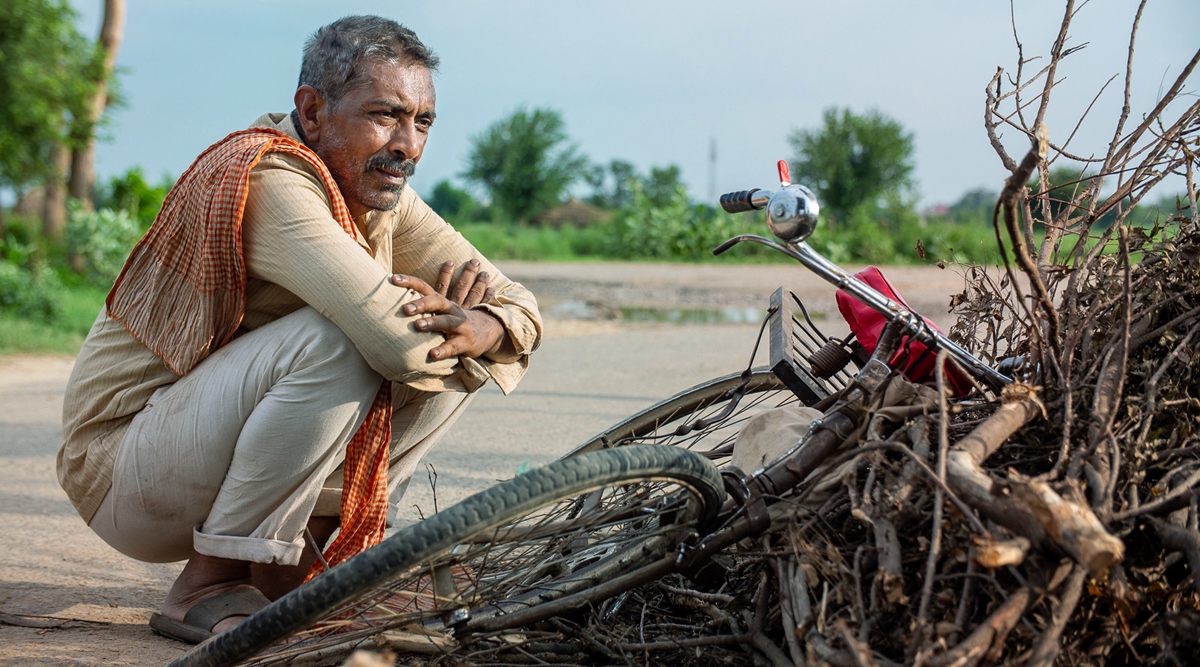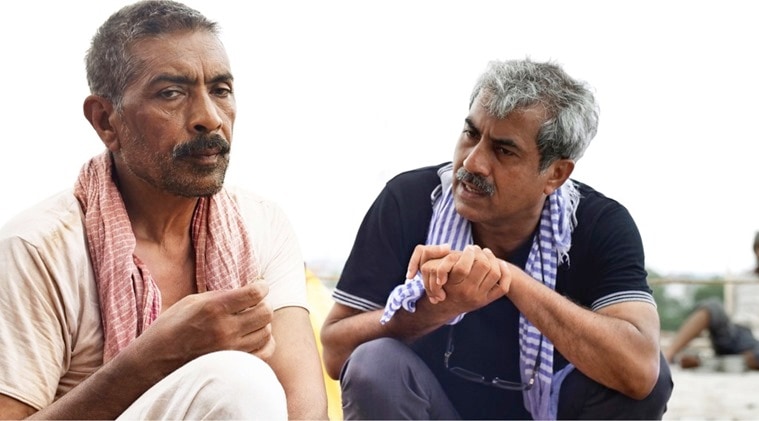|
November 23, 2020 12:16:14 pm

Prakash Jha-starrer Matto Ki Saikal is helmed by M Gani. (Photo: PR Handout)
Some people remain invisible, their stories untold and their ordeals don’t feature in government records. Living on the fringes of Mathura, daily wage labourer Matto could be one of them. A simple and honest man, he struggles to support his family of four. He is dependent on a rickety cycle, which after some nudging, carries him to work albeit not on time. Yet, Matto can’t think of replacing it with a new one as his meagre earnings won’t allow it.
The everyday struggles of Matto are captured in a new feature film titled Matto Ki Saikal (Matto’s Cycle), which is written and directed by M Gani. Interestingly, Prakash Jha, popularly known as a producer and director, essays the role of Matto. Gani shared the film’s script with Jha last year through an associate of the Mumbai-based filmmaker. The script chronicles a crucial period in Matto’s life when his faith in the system is tested, and his inherent positive attitude takes a beating. It was written in Devanagari script and the language was Braj. The script instantly grabbed Jha’s attention.
“We have stopped making movies about the marginalised section of our society. Under the shadow of progress, living on the construction sites or under a bridge, these people struggle to make their ends meet. The script reminded me of my movie Damul (1985),” says Jha. Set in Bihar, Damul (Bonded Until Death) is the story of a bonded labourer who is forced to steal for his landlord. Most of Jha’s movies touch upon social-political issues. His other directorial ventures include Mrityudand (1997), Gangaajal (2003), Aarakshan (2011) and Raajneeti (2010).
Prakash Jha was in for a surprise when he realised that Gani wanted him to play the protagonist. “Matto is subservient and mild-mannered. But Gani thought I could understand Matto. As an actor, playing this role was a challenge for me. I had to spend about 20 days in Mathura to prepare for the role,” says Jha, who has earlier acted in feature films Saand Ki Aankh (2019) and Jai Gangaajal (2016). Eventually, Jha not only acted as Matto but also co-produced the film.
Last month, Matto Ki Saikal premiered at Busan International Film Festival. It is likely to have a theatrical release in early 2021.
The film’s cast comprises non-professional and theatre actors of the locality. To make his role convincing, Jha did workshops and readings with the cast in Mathura before the 20-odd day shooting schedule began. This helped Jha become part of the world that Gani created. More importantly, Jha got acquainted with the old cycle that he had to ride during the filming.
 Prakash Jha and M Gani on the sets of Matto Ki Saikal. (Photo: PR Handout)
Prakash Jha and M Gani on the sets of Matto Ki Saikal. (Photo: PR Handout)
Gani, who has dabbled with street theatre for several years, has no formal training in filmmaking. Apart from working on a few short films, he has also shot Nakul Singh Sawhney’s documentary Muzaffarnagar Baaqi Hai (2015). These experiences influence Gani’s realistic storytelling. Gani wrote the story of Matto Ki Saikal in 2015 inspired by the life of his father while Pulkit Philip worked on its screenplay and dialogue. Before it was made into a feature film, the debutant director presented it as a play in slums. The story takes a deep look at the struggles of labourers, the promise of a good life that urban centres hold, the aspirations of people at the grassroots level, and how they are exploited by local politicians.
Over the years, Jha has successfully incorporated his socio-political concerns in his mainstream projects. “Ghani reminded me of my pure cinema days. I try to position the stories that I tell within the realm of reality. Primarily even when it’s a commercial movie, I choose stories about what’s happening around us. Problems related to caste and class are constant in my movies. That’s something which is not going to change. In my last film Pareeksha (2019), too, I talked about class,” says Jha, who has yet another social-political story in mind — a project titled Janadesh — which will be filmed soon.
© IE Online Media Services Pvt Ltd
This article is auto-generated by Algorithm Source: indianexpress.com


